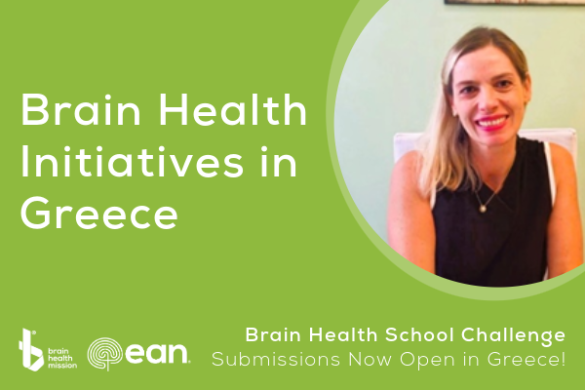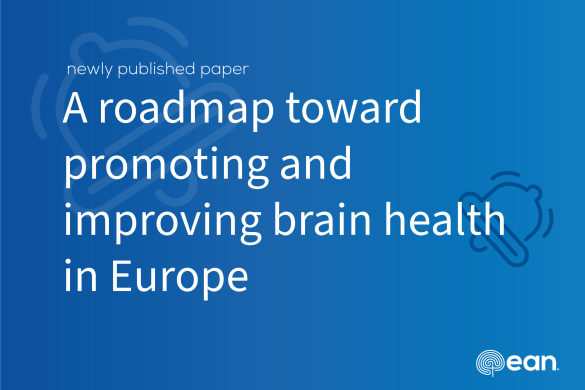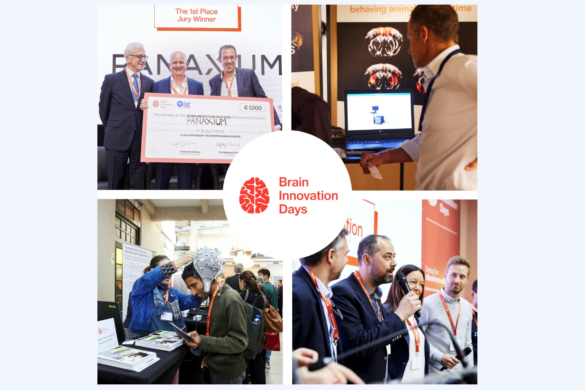by Raphael Wurm (EAN Communication Committee) and Alexandra Schebesta (Open Science)
Brain health is the EAN’s most important mission. Many factors contribute to it, and one that is omnipresent, yet also often underemphasised, is diet. The reasons for this are manifold: funding is hard to come by, the public interest is limited, and adherence to dietary rules is complicated to measure objectively, to name a few.
It is thus very reassuring to find food for which the data is overwhelmingly positive, and clinicians and dieticians can turn to for recommendations – such as nuts!
Nuts are rich in fats, proteins, carbohydrates, and fibres. They are generally low in water and energy-dense, but their value lies mostly in them being a source of micronutrients such as alpha linolic acid, nicotinamide, vitamin E, or lipoic acid. The science on their benefits is unequivocal; they reduce cardiovascular events and the rates of some cancers 1. But just as brain health is much more than just cardiovascular prevention, nuts can perhaps do more for your brain than you thought.
There is experimental evidence that nuts can positively influence the two hallmarks of Alzheimer’s pathology – amyloid plaques and tau fibrillary tangles 2–4. Indeed, if we turn to cohort studies, we find further signals for the positive effects of nut consumption on cognitive function. A recent meta-analysis concludes that for studies on walnuts, six out of the seven trials identified showed a positive association of consumption with performance on cognitive tests 5. Notably, patients with an unfavourable risk profile for cognitive changes seem to profit more from nut consumption than those without.
Guidelines across Europe vary in amounts, but they are united in their recommendation of the consumption of unsalted and unprocessed nuts, and some even suggest replacing a portion of fruits with a handful of nuts per day 6.
The critical reader could now argue that the science on diet and brain health is not as rigorous as we have come to expect it from other fields of medicine, and we concur. However, it is remarkable that in all trials on the consumption of nuts reviewed for this article, we did not come across one that found negative effects.
On this note, keep being nuts about brains!
This is a summary of the article Brainfood during Christmas that was published by EAN member and dementia specialist Raphael Wurm and Alexandra Schebesta, a former geneticist turned science communicator at Open Science. The article in German, along with more information, can be accessed here
Open Science stands for the dialogue between science and the public and is committed to making life science visible, tangible, and understandable. The non-profit organisation provides information based on current scientific knowledge and supports the social reflection of the impact of science.
More information about open Science: Open Science
1 Aune D, Keum N, Giovannucci E, et al. Nut consumption and risk of cardiovascular disease, total cancer, all-cause and cause-specific mortality: a systematic review and dose-response meta-analysis of prospective studies. BMC Med 2016; 14: 207.
2 Chauhan A, Chauhan V. Beneficial Effects of Walnuts on Cognition and Brain Health. Nutrients 2020; 12: 550.
3 Shimmyo Y, Kihara T, Akaike A, Niidome T, Sugimoto H. Multifunction of myricetin on Aβ: Neuroprotection via a conformational change of Aβ and reduction of Aβ via the interference of secretases. J of Neuroscience Research 2008; 86: 368–77.
4 Desale SE, Dubey T, Chinnathambi S. α-Linolenic acid inhibits Tau aggregation and modulates Tau conformation. International Journal of Biological Macromolecules 2021; 166: 687–93.
5 Theodore LE, Kellow NJ, McNeil EA, Close EO, Coad EG, Cardoso BR. Nut Consumption for Cognitive Performance: A Systematic Review. Adv Nutr 2021; 12: 777–92.
6 Food-Based Dietary Guidelines recommendations for nuts and seeds | Knowledge for policy. https://knowledge4policy.ec.europa.eu/health-promotion-knowledge-gateway/food-based-dietary-guidelines-europe-table-12_en (accessed Jan 23, 2024).












